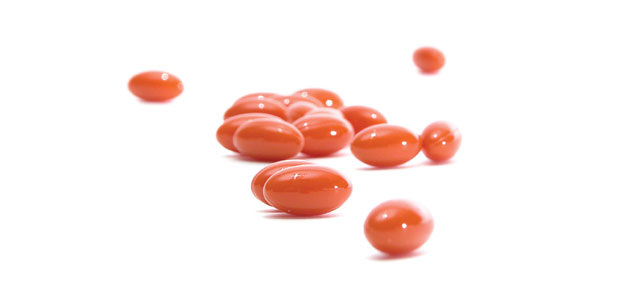Advertisement
CoQ10
The queen of antioxidants

Coenzyme Q10 (CoQ10), also known as ubiquinone, is a critical nutrient used in the production of energy within our cells.
Since its discovery, researchers have found various uses for this incredible antioxidant including treating heart disease, congestive heart failure, increasing energy levels, boosting the immune system, providing antioxidant benefits, and even preventing certain side effects
from common cholesterol-lowering drugs.
Boosts Energy
Lack of energy is a common problem, especially as winter ends and spring begins. Everything from lack of micronutrients to inadequate fluid intake, overwork, stress, and lack of sleep can zap energy.
CoQ10, present in the inner layer of the mitochondria (metabolic factories or energy powerhouses) in your cells, is a vitamin-like substance needed to process oxygen and produce energy. It helps to create the energy needed for our cells to thrive and survive. Without CoQ10, the energy hidden in food could not be converted into a form of energy (ATP) in muscle cells. Supplemental CoQ10 has been shown to improve overall performance, vigour, and muscle recovery time in athletes.
Activates Immune System
Vitamin and mineral deficiencies are well known to be common causes of immune deficiencies leading to an increased susceptibility to infections caused by viruses and bacteria. CoQ10 plays a crucial role in supporting and strengthening the immune defences. Because fighting off disease requires a great deal of energy on the cellular level, CoQ10 is necessary to stimulate this important energy production.
Antioxidant Powerhouse
It is now believed by many scientists and researchers that CoQ10 reduces the effects of aging and disease because of its tremendous antioxidant potential. CoQ10 exists in every cell in our body, acting as the body’s major antioxidant to defend us from toxic free radicals that damage our cells.
As we age, our body’s production of CoQ10 declines by as much as 57 percent, making this one of the most important dietary supplements for those over the age of 30. Because CoQ10 is so important to energy production, researchers believe that declining levels may be a factor in the effects of aging on the human body.
Improve Brain Function
Aging often causes a progressive decline in cognitive function. Numerous published studies show that brain aging can be controlled, at least in part. Some of these studies demonstrate CoQ10 has a protective effect while others show a benefit in reversing the neurological impairment caused by normal aging or by an age-related condition such as having had a stroke.
An animal study by the National Academy of Science indicates that short-term supplementation with moderate amounts of CoQ10 protects the brain against degenerative disease. It does so by increasing the concentration of both brain and brain mitochondria, which provide energy for brain cell function. CoQ10 may also protect the brain by reducing free radicals.
CoQ10 may also be effective in the treatment of Parkinson’s disease. A study published in 2002 in the Archives of Neurology found that CoQ10 levels in Parkinson’s patients were 35 percent lower than in a control group of the same age. This impressive study showed that
high-dose CoQ10 supplementation slows the progression of Parkinson’s disease by 44 percent.
Healthy Heart
CoQ10 is found in highest concentrations in the tissues in the body that work the hardest, including the heart and the liver. Initial studies have found that people with cardiac problems have very low levels of CoQ10.
Many studies have suggested that CoQ10 helps vitamin E keep down excess levels of low-density lipoprotein (LDL or bad) cholesterol, helps prevent LDL oxidation, and maintains healthy balance of oxidative stress, all of which can lead to atherosclerosis (hardening of the arteries).
Statin drugs, prescribed to help lower total and LDL cholesterol, directly impact the body’s natural production of CoQ10. Therefore, when statin drugs block the production of liver cholesterol, CoQ10 levels also drop. This constitutes a new risk of cardiac disease, since it is well known that CoQ10 is indispensable for heart function. It is extremely important to supplement with CoQ10 while on statin drugs, to avoid becoming deficient in this critical heart nutrient.
CoQ10, Life’s Miracle Nutrient
Everyone can benefit from CoQ10, as our body’s production naturally decreases the older we get. Aim for 60 to 100 mg of absorbable CoQ10 to help your body function at peak performance.




